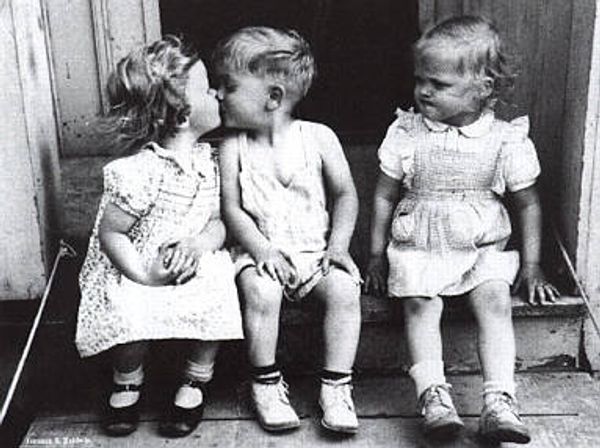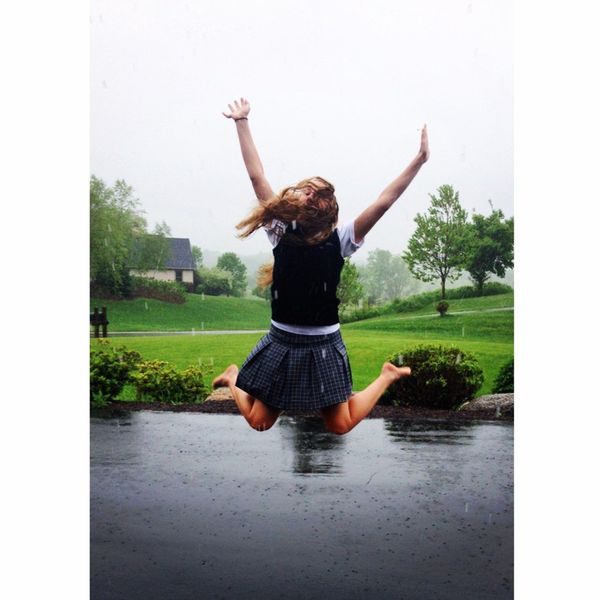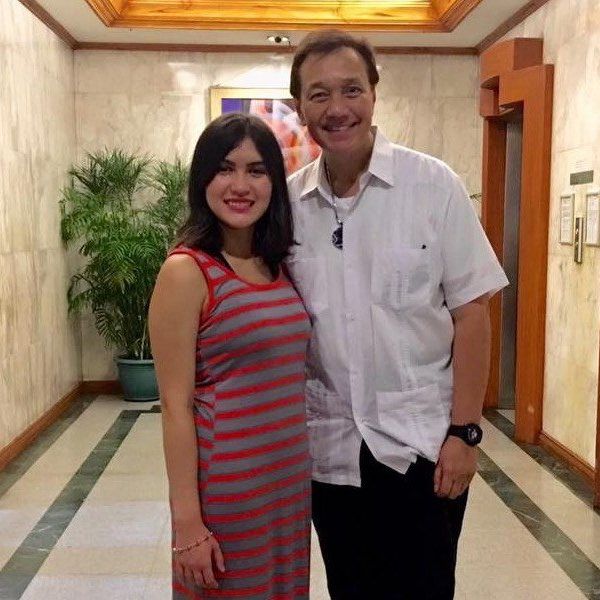I’ve not yet traveled abroad myself, but this past year I’ve had several close friends study in different countries all across the world. Right now, my best friend – the roommate I went to sleep and woke up near for two years – is in England. She currently wakes up in the same nation, sees the same sights, sits in the same places and walks the same paths as some of my favorite authors did (along with every other English person who has ever existed, even before the land was called “England”). To me, that thought expands the world and familiarizes history.
My bubble where I wake up, attend classes, go to work and socialize exists in the same world where British people, Ecuadorian people, Romanian people are waking up in their bubbles and going about their days. And we all exist in the very same world as C.S. Lewis, St. Bernard of Clairvaux, Aristotle and everyone else.
It nearly doesn’t seem real to me. But there’s no other option for it except for it to be real. There’s no other world where humans are or were. We share this place with every other event that has ever happened and every other human who has ever lived.
I mean, duh. I guess that’s obvious. Why is it so shocking for me to think about?
I’m taking a class this semester on a writer named Denise Giardina. We've read three of her books so far this semester: a fictional biography about King Henry IV, a fictional biography about Dietrich Bonhoeffer and a historical fiction novel about coal mining in Appalachia. I’ve never really read fictional history pieces before. Fictional truths are strange.
To me, the most seemingly realistic portions of these books have been the fictional fillers. The details of Harry's friendship with King Richard II; what Dietrich's family's life looked like; the domestic turmoil in a Kentuckian household. There have been many points in these books, however, where I’ve wanted to roll my eyes and say, “How exaggerated; not realistic at all,” and those have been the historical, factual aspects of the stories. The deadly war strategies used by King Henry; the moral blindness of Europeans and Americans in the years leading up to the Holocaust; child labor and other tragic cruelties inflicted on Appalachian communities by coal companies.
I grab breakfast with a friend, pay my tuition bill, and spend an afternoon writing – all in the same world where the reality of historical cruelties have taken place. Murders and starvation and wars and all manner of darkness have happened and do happen on the very same planet that I am on right now. The history of our world means the history of our world’s evil. It’s all happened right here. It’s very real. It’s closer to us than we think. But, somehow, it doesn’t really feel that close. It would seem more fitting for it all to be fiction stories.
I heard more news of another mass shooting at a school this week. People put forth arguments for gun restrictions. People reacted against those arguments, criticizing the immediate politicizing of an event that caused a community’s grief. The old rinse and repeat. But for once, it didn’t stop there. The grieving community has pushed back, wanting their trauma to cause change. It makes sense to me that after hundreds of incidents like this happening to hundreds of people, high schoolers were the ones to finally say “enough” – it makes sense for the generation raised on Sandy Hook to be the ones to make a change happen.
While the students in Florida suffered and continue to suffer, I went to class and will continue my daily life. Despite social media and history and books, there’s nowhere else for me to live but in my present surroundings. And despite my present surroundings, there’s nowhere else for atrocities to happen but in this world shared with me.
One of my professors wrote a piece on her experience fasting from news. Reading that article this past week helped me put a question to my confusion on this blend of fiction in reality – the world’s grander happenings in light of daily life. After considering both the freedom and the guilt felt from avoiding the news, she asks: “Is it permissible, even beneficial, to know the world at dirt-level? To have a sightline that only goes so far, but the faces within it are familiar and clear?”
When I’m honest, the things beyond my bubble – whether geographical, historical, moral, or all of the above – feel a bit fictitious. As if there’s another land where things have occurred, and where I am is somewhere different. Is that an avoidable feeling? Should it be? Should we just focus on what’s within our reach, what is real, tangible to us? Or is our duty to stretch ourselves out until all of humanity feels familiar?



















